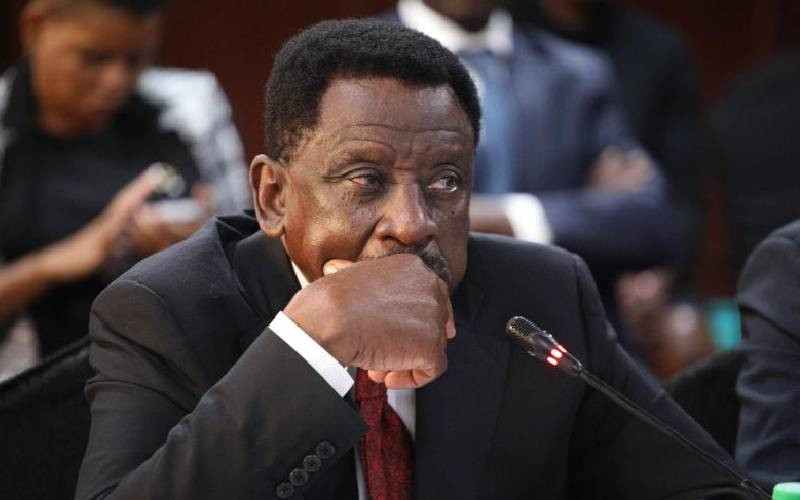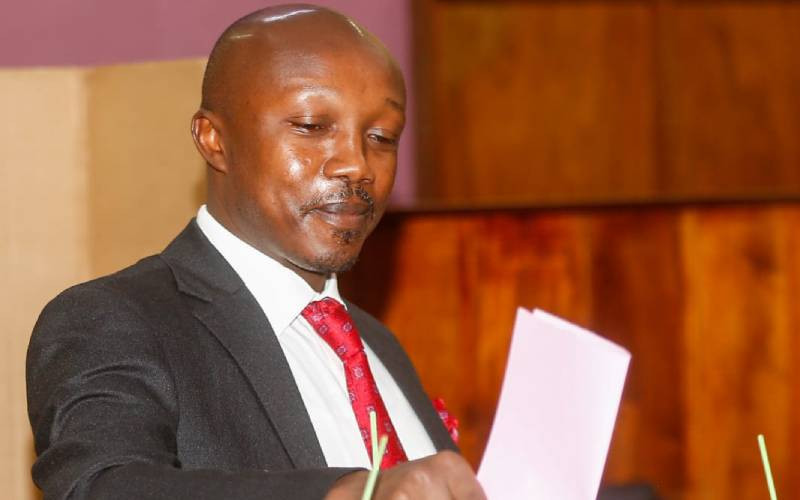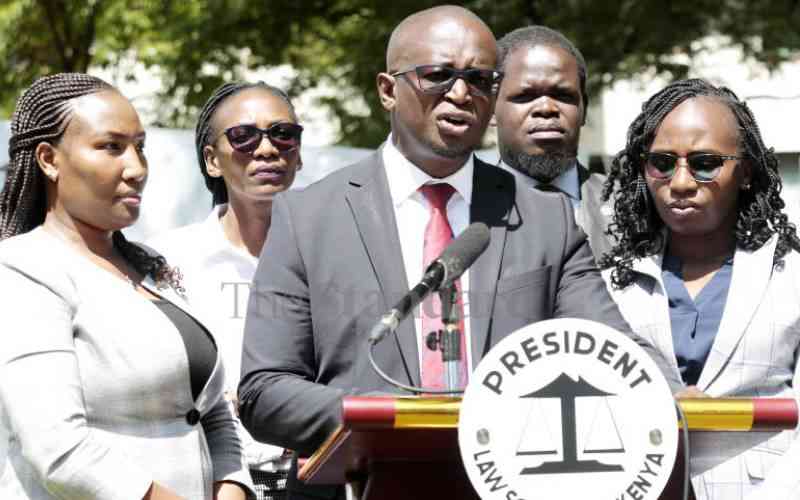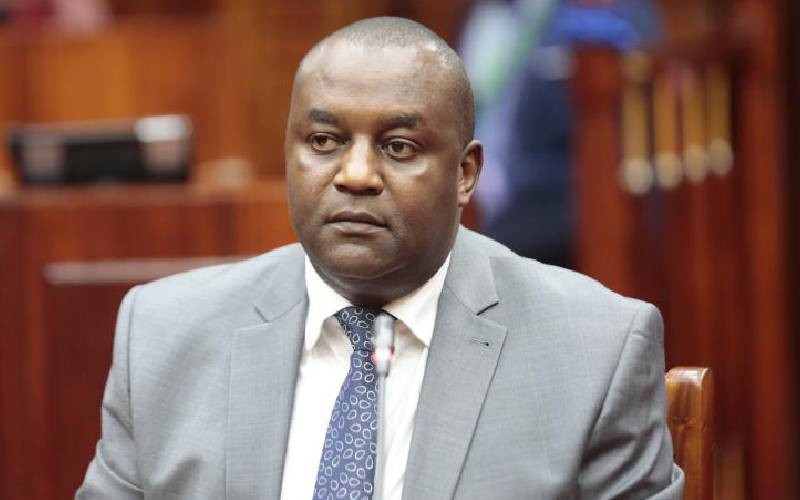A Court of Appeal judge has been awarded Sh26 million following a defamation suit he filed against The Standard arising from his unsuccessful application for the position of Chief Justice in 2011.
High Court judge Roselyne Aburili gave Justice Alnasir Visram the award, noting that the headline of an article published by The Standard and obtained from a report by the Law Society of Kenya (LSK) to the Parliamentary Committee on Administration of Justice and Legal Affairs damaged his reputation as a judge.
Mr Visram has once again applied for the Judiciary's top job and was interviewed by the Judicial Service Commission (JSC) on Monday.
The judge noted that although JSC did not explain to Visram why they rejected his first application, the panel, she said, was "poisoned" by the headline 'Unfit for justice' to believe that Visram was not the right candidate for the job. The judge added that the newspaper influenced Visram's interview session and that it caused him humiliation and ridicule in the eyes of the public.
"Although this court cannot find that the plaintiff lost the nomination by the Judicial Service Commission when he applied for the position of Chief Justice due to the publication as no report giving reasons for his rejection was produced in evidence, no doubt that evidence of his experience with the interviewer creates an impression that the interview panel were poisoned by the screaming headline "unfit for justice" and that after all they were not the ones going to sanitise the plaintiff who was now being perceived as being unfit for justice," the judge ruled.
Although Visram is quoted in the story dismissing the allegations lodged against him by LSK, the High Court ruled that he was not given a chance to rebut the same.
In her verdict, Aburili noted that one does not need to prove in court that one has lost one's job or business to succeed in a defamation claim.
"It does not mean that for one to succeed in the claim for libel, then the claimant must prove that he lost his job or business," she said.
Aburili said if LSK was interested in raising any concern about the judge, it could have done so before the Judges and Magistrates Vetting Board.
She noted that Visram had been given a clean bill by the commission led by Sharad Rao, adding that the newspaper did not demonstrate to her that the content by LSK was the truth.
"In my view, the publication taken as a whole clearly paints the plaintiff to be a person who does not deserve to hold the office of a judge to administer justice and therefore that of a Chief Justice. The article painted him as a liar, a perjurer and dishonest person with questionable professional background," she said.
"The defendant was not prepared to doubt what the Law Society of Kenya had written of and concerning the plaintiff since it was nothing but Holy Scripture and it proceeded to convert that source's information into bullet-proof facts," she added.
But the judge was alert to fact that her colleague could not have become Chief Justice when he was first nominated by President Mwai Kibaki as the process was unlawful. She praised LSK for raising the red flag but added they no basis to criticise the judge.
APPOINTING AUTHORITY
The judge said LSK and the media should have directed their rage at the appointing authority rather than his desired person.
Stay informed. Subscribe to our newsletter
"The LSK and therefore the media's rage should have been directed at the President who had flouted the procedure provided for in the Constitution by nominating or purporting to nominate suitable persons for consideration for appointment as Chief Justice, Attorney General and Director of Public Prosecutions into constitutional offices," she ruled.
Aburili said that there was no evidence to show Visram applied for the unprocedural position, adding that the court had cleared the judge from the claims by LSK.
Only two testimonies supported Visram's case - his and that of his mentee, National Water Conservation and Pipeline Corporation legal officer Justus Ambulutsi.
Visram took the witness stand as the second person to testify. He said the publication by The Standard was meant to deny him a chance to be a Chief Justice in Kenya.
Aburili quoted him saying it was the lowest moment in his life because the The Standard published malicious lies about him and only intended to kill his nomination as the Chief Justice and he firmly believes that the publication did kill his prospects of becoming a Chief Justice.
 The Standard Group Plc is a
multi-media organization with investments in media platforms spanning newspaper
print operations, television, radio broadcasting, digital and online services. The
Standard Group is recognized as a leading multi-media house in Kenya with a key
influence in matters of national and international interest.
The Standard Group Plc is a
multi-media organization with investments in media platforms spanning newspaper
print operations, television, radio broadcasting, digital and online services. The
Standard Group is recognized as a leading multi-media house in Kenya with a key
influence in matters of national and international interest.
 The Standard Group Plc is a
multi-media organization with investments in media platforms spanning newspaper
print operations, television, radio broadcasting, digital and online services. The
Standard Group is recognized as a leading multi-media house in Kenya with a key
influence in matters of national and international interest.
The Standard Group Plc is a
multi-media organization with investments in media platforms spanning newspaper
print operations, television, radio broadcasting, digital and online services. The
Standard Group is recognized as a leading multi-media house in Kenya with a key
influence in matters of national and international interest.








